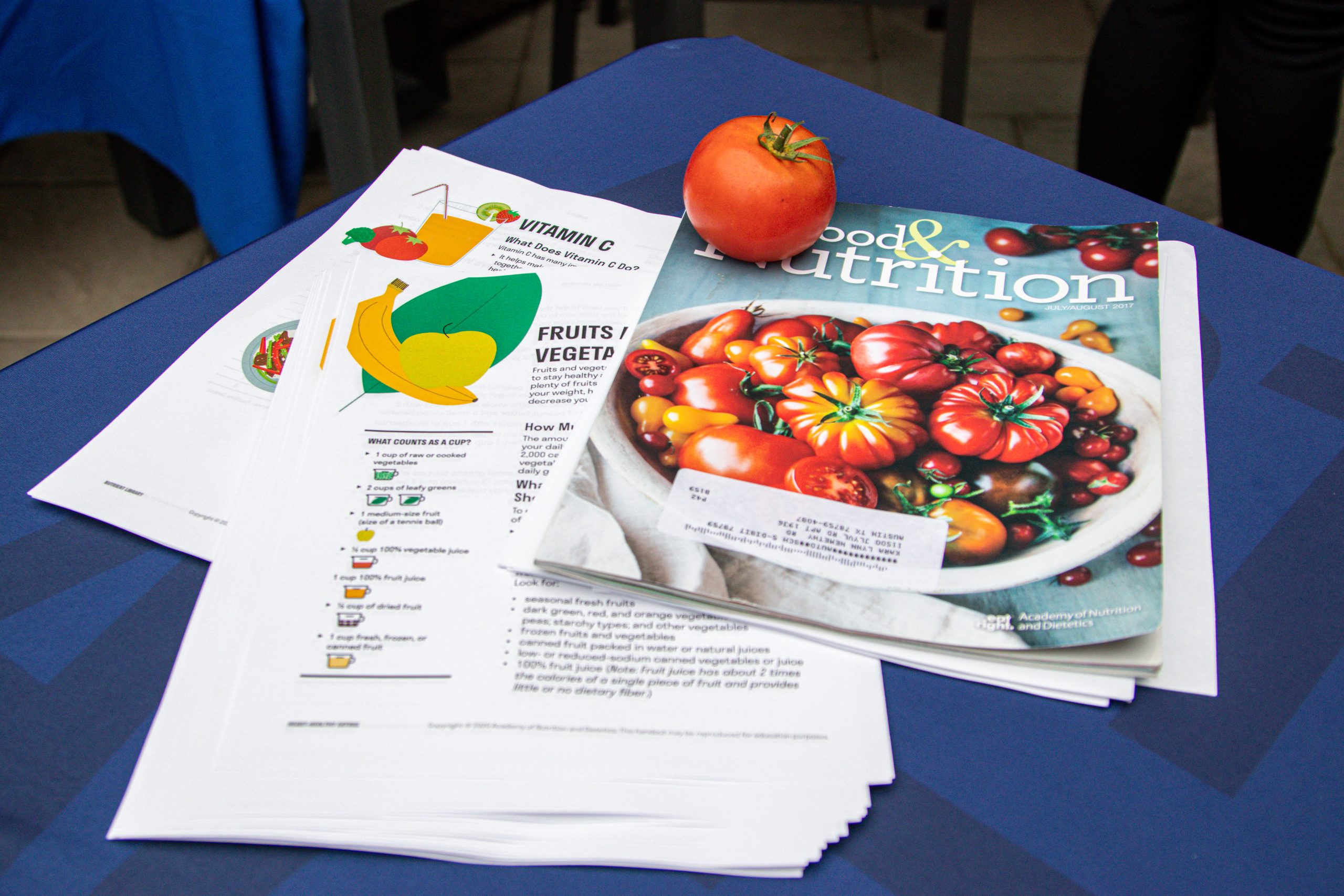
Nutrition
Fuel Your Life
Our dietitian offers a variety of programs and services designed to help you reach your health and wellness goals. You will gain healthy insights through individual counseling sessions, nutrition education workshops, cooking classes, and food demonstrations.
Participation Benefits
- Improve nutritional knowledge
- Learn how to read nutrition facts labels to make more nutritious choices at the grocery store
- Experience new foods
- Learn budget-friendly shopping tips
- Develop lifelong healthy eating habits
- Learn cooking and food preparation skills
Upcoming Events

Cooking Demonstrations
Watch an informative demonstration of culinary techniques and recipes while learning tips for enhancing flavors and the benefits of eating certain foods.
Nutrition Education Workshops
Explore topics including grocery shopping, eating on a college budget, meal planning, cooking skills, general nutrition, and more. Contact Kara to request certain topics or share your collaboration ideas.


Individual Nutrition Counseling
Navigate your dietary needs and preferences while still enjoying a variety of tasty, nutritious foods through tailored advice addressing:
- General healthy eating
- Meal planning
- Special diets
- Food allergies and intolerances
- Chronic illnesses or eating disorders
Registered Dietitian vs. Nutritionist
Registered dietitians are nutritionists, but not all nutritionists are registered dietitians. The terms are often used interchangeably but there are some very important differences in the meanings and qualifications for these titles.
A registered dietitian (RD) or registered dietitian nutritionist (RDN) is a professional who has completed a bachelor’s degree from an accredited university, completed a 1,200-hour supervised practice program and passed a national registration exam. Nutritionist is a much broader term and is not regulated by a governing body.
When seeking nutrition advice, always look to professionals with the RD or RDN credential, as they have undergone rigorous training and are held to high standards of education, ethics and professional conduct.

Nutrition Tips for College Students
Don't Forget to Snack: Snacking can be a great way to increase the variety of nutrients in your diet. Aim for nutrient-dense foods such as nuts and seeds, beans and legumes, whole grains, dairy, fruits and vegetables. Try veggie sticks with cottage cheese or hummus or cheese cubes with nuts and apple slices.
Eat a Balanced Diet: Consume a well-balanced diet that includes a variety of whole foods, such as fruits, vegetables, whole grains, beans and legumes, lean proteins, and healthy fats. Aim for nutrient-dense foods to ensure you’re getting essential vitamins, minerals, and antioxidants that support brain health.
Make Half Your Plate Fruits and Vegetables: Fruits and vegetables add vitamins, minerals, antioxidants and dietary fiber to your diet. They also add exciting flavors, colors and textures to your meals!
Don’t Skip Meals: Regular meals provide a steady supply of nutrients and energy to support brain function. Aim to eat balanced meals and snacks throughout the day to maintain stable blood sugar levels and prevent energy crashes.
Practice Mindful Eating: Pay attention to your body’s hunger and fullness cues. Practice mindful eating by savoring each bite, eating slowly, and focusing on the sensory experience of your meals. This can enhance the enjoyment and satisfaction you derive from food.
Drink More Water: Drink plenty of water throughout the day to stay properly hydrated, especially if you are active or during hot summer days. Choose water over sugary beverages.
WE care about your Nutrition
START YOUR ACTIVE JOURNEY!
Contact Us
- Campus Recreation
- 903.468.3181
- CampusRec@tamuc.edu
- 2600 W. Neal St.
- Commerce, TX 75428



 Events
Events
